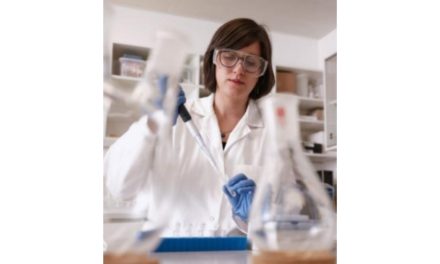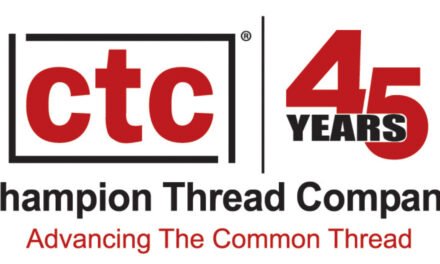 UK sales of Soil Association certified organic textiles grew by 10 per cent in value to 45.4 m euro in 2019, according to a report. The new ‘2020 UK Organic Textile Market Report’ from the Soil Association based its findings on data from businesses who certify to the Global Organic Textile Standard and the Organic Content Standard through Soil Association Certification with clothing making up 44 per cent of total organic textile sales – an increase of 14 per cent, estimated to be worth 16.5 mn euro.
UK sales of Soil Association certified organic textiles grew by 10 per cent in value to 45.4 m euro in 2019, according to a report. The new ‘2020 UK Organic Textile Market Report’ from the Soil Association based its findings on data from businesses who certify to the Global Organic Textile Standard and the Organic Content Standard through Soil Association Certification with clothing making up 44 per cent of total organic textile sales – an increase of 14 per cent, estimated to be worth 16.5 mn euro.
Sales of organic textiles in the UK are still dwarfed by the wider textiles market, with latest available figures from the UK Fashion and Textiles Association (UKFT) showing that UK consumers spent over £74bn on clothing, clothing accessories, household textiles and carpets in 2018. UK garment sales alone stood at £53bn in 2018, but nevertheless, the Soil Association remains optimistic about future sales growth.
“There is huge potential for the organic textile market to grow even more in the coming years, as more people try to reduce their impact on the environment in all areas of their lives,” says Sarah Jupp, Organic Textiles Business Development Manager, Soil Association Certification.
Brands, retailers and suppliers are all expecting demand for organic textiles to increase, according to the Soil Association’s newly published report, which claims that ‘90 per cent’ of organisations sourcing organic cotton that it surveyed in 2019 are expecting to increase the volume they source in 2020. Greater consumer demand and better availability of organic cotton were cited as the two key reasons why brands would source more organic cotton.
“Future growth in the market is dependent on brands and retailers – with more facilities certified to the Global Organic Textile Standard and the Organic Content Standard, and growing consumer demand, it is incumbent on retailers to stock more organic and highlight the benefits that certified organic textiles can bring,” explained Jupp. “The GOTS and OCS logos are vital signals that organic sourcing claims can be backed up through third party assurance. Without a certification logo, there’s no proof of the organic claim from fibre to final product.”
Yet research conducted in 2019 by the Certification body found that while 39 per cent of 3,000 people surveyed care about the environment, but less than a third (32 per cent) check what an item of clothing is made from before making a purchase. Meanwhile, ‘organic cotton’ as an online search rose 52 per cent in 2019, according to Lyst, while the Soil Association says its own organic cotton awareness campaign in October 2019 saw traffic to its website ‘increase by 130 per cent’.
Hannah Evans, Founder of children’s clothing retailer Picalilly, noted: “We’ve found a massive surge in demand from parents concerned about climate change, who have cottoned on to the true benefits of purchasing organic.”
 UK sales of Soil Association certified organic textiles grew by 10 per cent in value to 45.4 m euro in 2019, according to a report. The new ‘2020 UK Organic Textile Market Report’ from the Soil Association based its findings on data from businesses who certify to the Global Organic Textile Standard and the Organic Content Standard through Soil Association Certification with clothing making up 44 per cent of total organic textile sales – an increase of 14 per cent, estimated to be worth 16.5 mn euro.
UK sales of Soil Association certified organic textiles grew by 10 per cent in value to 45.4 m euro in 2019, according to a report. The new ‘2020 UK Organic Textile Market Report’ from the Soil Association based its findings on data from businesses who certify to the Global Organic Textile Standard and the Organic Content Standard through Soil Association Certification with clothing making up 44 per cent of total organic textile sales – an increase of 14 per cent, estimated to be worth 16.5 mn euro.





















